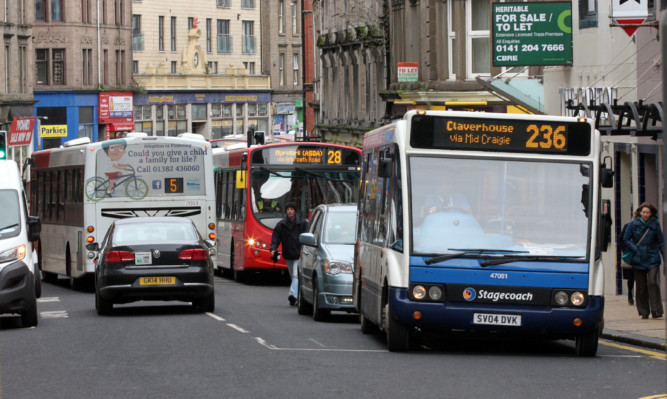A new campaign for a fairer deal for bus travellers is calling for the introduction of a Scotland wide smart card system for public transport.
The Bus Fair initiative also wants more priority bus lanes to be created to help speed up journeys and is urging the UK Government to provide tax relief on public transport season tickets.
The campaign, by the sustainable transport body Transform Scotland, says it is “unfair” that commuters who travel to work by bus do not benefit from schemes such as tax incentives for workplace parking and the Cycle to Work scheme, which can reduce the cost of buying a bike.
Buses support some 260,000 jobs across Scotland, according to research published by Transform Scotland, with those who commute to work this way contributing £2.3 billion a year to the economy.
Transform Scotland chair Phil Matthews said: “We need the transport debate to pay much more attention to buses. There is an ongoing fascination with new air routes, motorways, and high-speed trains, but very little focus on the mode of transport used by most users of public transport on a daily basis. That is why we’re today launching our Bus Fair campaign.”
He added recent government figures has shown a 10% drop in bus passengers over the last five years, adding it is ” now imperative that government turns more of its attention to how it can reverse this worrying fall in bus use”.
Mr Matthews continued: “While there has been welcome growth in rail travel over the past decade, rail remains a small part of overall Scottish public transport, with buses still moving 80% of all travellers.
“Buses are important for the Scottish economy, but investment in buses is also important for societal reasons.
“Lower income groups, young people, women, and the elderly are disproportionately dependent on buses in order to get around. If political parties are serious about a fairer and more inclusive Scotland they need to focus on buses and thereby better meet the needs of these groups.”
